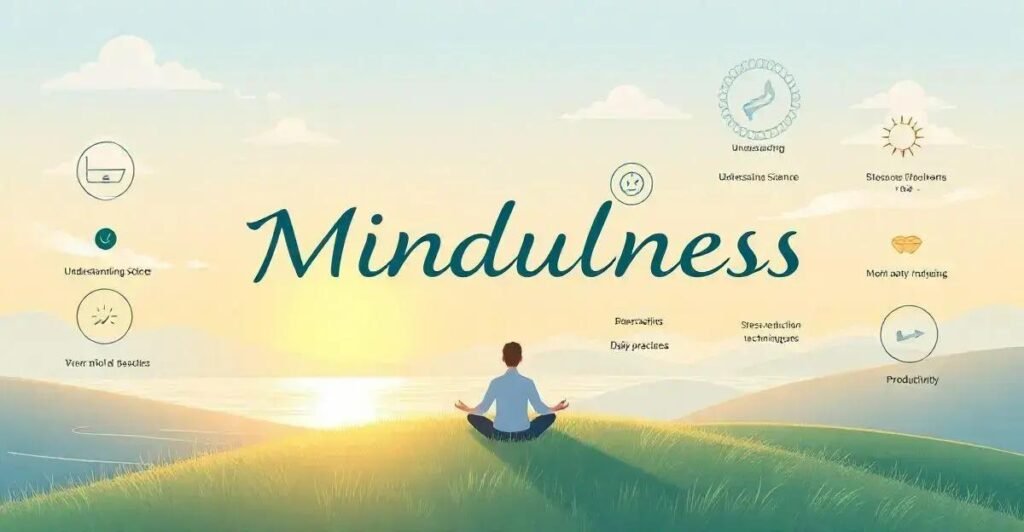Meditation is a powerful tool that can transform your mind and body.
With its increasing popularity, many people are seeking to learn more about this ancient practice.
But what is meditation, and how can it benefit you?
In this post, we will explore the benefits of meditation, its techniques, and how it can improve your mental and physical wellness.
Whether you’re a beginner or an experienced meditator, you’ll find valuable insights and tips to enhance your practice.
Table of Contents
Meditation Techniques for Beginners
Meditation is a simple yet powerful practice that can be learned by anyone, regardless of age or background. To get started, find a quiet and comfortable place to sit or lie down, close your eyes, and focus on your breath. When your mind wanders, gently bring your attention back to your breath without judgment.
You can also use guided meditation apps or videos to help you stay on track. Remember, the goal of meditation isn’t to achieve a specific state or stop your thoughts completely, but to cultivate awareness and acceptance of the present moment.
With regular practice, you can experience the many benefits of meditation, including reduced stress and anxiety, improved sleep, and increased focus and clarity.
The Science Behind Meditation and Its Effects on the Brain

The human brain is a complex and fascinating organ, and meditation has been shown to have a profound impact on its structure and function.
Research has found that regular meditation practice can increase grey matter in areas of the brain associated with attention, emotion regulation, and memory.
Meditation has also been shown to reduce activity in the amygdala, the part of the brain responsible for processing fear and anxiety.
This can lead to a range of benefits, including reduced stress and anxiety, improved mood, and increased focus and concentration.
By understanding the science behind meditation and its effects on the brain, we can better appreciate the powerful tool it can be for personal and professional growth.
Overcoming Common Meditation Obstacles and Challenges
Meditation is not always easy, and it’s common to encounter obstacles and challenges along the way. One of the most common struggles is developing a consistent practice, as life can get in the way and make it difficult to find time to meditate.
Another challenge is dealing with a restless mind, as thoughts and distractions can be overwhelming. Additionally, some people may experience physical discomfort or fatigue from sitting for extended periods.
To overcome these obstacles, it’s essential to be patient and kind to yourself. Start with small, manageable goals, and gradually increase your practice. Use guided meditations or apps to help you stay focused, and consider incorporating physical movement or stretching to reduce discomfort.
Remember, meditation is a journey, and it’s okay to take it one step at a time.
The Importance of Mindfulness in Meditation

Mindfulness is a crucial aspect of meditation that involves being present and fully engaged in the current moment, without judgment or distraction.
By cultivating mindfulness, you can develop a greater sense of awareness and acceptance of your thoughts, emotions, and physical sensations.
This can lead to increased self-awareness, improved relationships, and a greater sense of calm and clarity.
In meditation, mindfulness is often achieved through techniques such as focusing on the breath, body scan, or walking meditation.
By incorporating mindfulness into your daily routine, you can experience a range of benefits, from reduced stress and anxiety to improved sleep and overall well-being.
Meditation for Stress Relief and Anxiety
Meditation has been shown to be an effective tool for reducing stress and anxiety by promoting relaxation and calming the mind.
One of the primary ways meditation achieves this is by activating the parasympathetic nervous system, which is responsible for promoting relaxation and reducing stress.
Additionally, meditation can help to reduce rumination and worry, and can even help to alleviate symptoms of anxiety disorders such as GAD and OCD.
By incorporating meditation into your daily routine, you can experience a range of benefits, from reduced stress and anxiety to improved sleep and overall well-being.
With regular practice, you can develop greater resilience and coping skills, and improve your ability to manage stress and anxiety in your daily life.
Meditation for Improved Focus and Concentration

Meditation has been shown to improve focus and concentration by training the mind to stay present and focused on a single task.
Regular meditation practice can also increase grey matter in areas of the brain associated with attention and impulse control, leading to improved cognitive function and reduced mind-wandering.
Additionally, meditation can help to reduce stress and anxiety, which can impede focus and concentration.
By incorporating meditation into your daily routine, you can experience a range of benefits, from improved focus and concentration to increased productivity and overall well-being.
With regular practice, you can develop greater control over your attention and improve your ability to stay focused and motivated.
FAQ – Frequently Asked Questions About Meditation
What is the purpose of meditation?
Meditation is a practice that helps to calm the mind, reduce stress and anxiety, and increase focus and concentration. It involves training the mind to stay present and focused on a single task, leading to improved cognitive function and overall well-being.
How do I get started with meditation?
To get started with meditation, find a quiet and comfortable place to sit or lie down, close your eyes, and focus on your breath. You can also use guided meditations or apps to help you stay focused. Start with short sessions and gradually increase the duration as you become more comfortable with the practice.
What are the benefits of meditation?
The benefits of meditation include reduced stress and anxiety, improved focus and concentration, increased self-awareness, and improved overall well-being. Meditation can also help to reduce symptoms of anxiety and depression, improve sleep quality, and increase feelings of calm and relaxation.
Can meditation be done anywhere?
Yes, meditation can be done anywhere, whether it’s at home, in a quiet corner of your office, or even in nature. All you need is a quiet and comfortable space to sit or lie down and a willingness to focus on your breath or a guided meditation.
How often should I meditate?
It’s recommended to meditate at least once a day, but ideally twice a day, once in the morning and once in the evening. However, even a few minutes of meditation a day can be beneficial. Consistency is key to developing a meditation habit.
Can I meditate with my eyes open?
Yes, you can meditate with your eyes open, but it’s recommended to close your eyes to focus your attention inward and reduce distractions.



